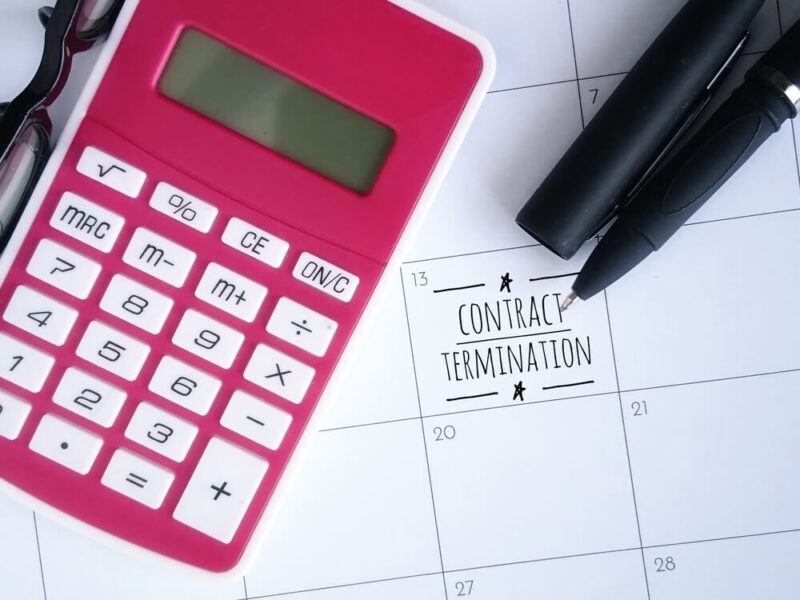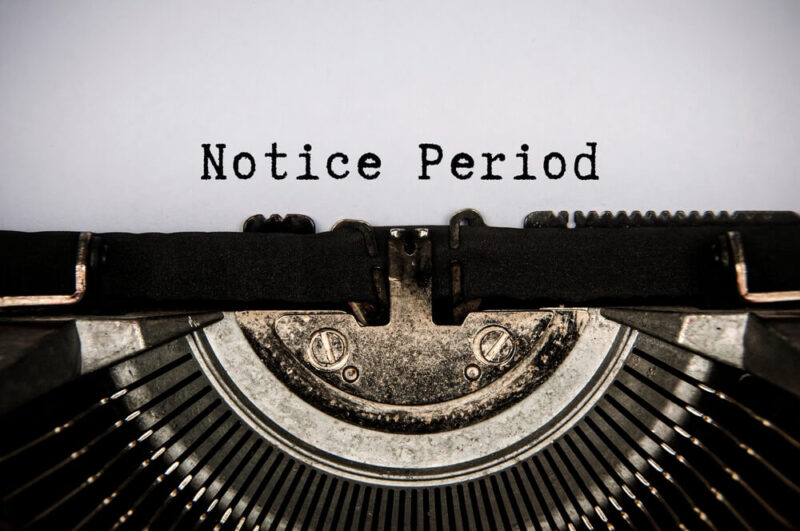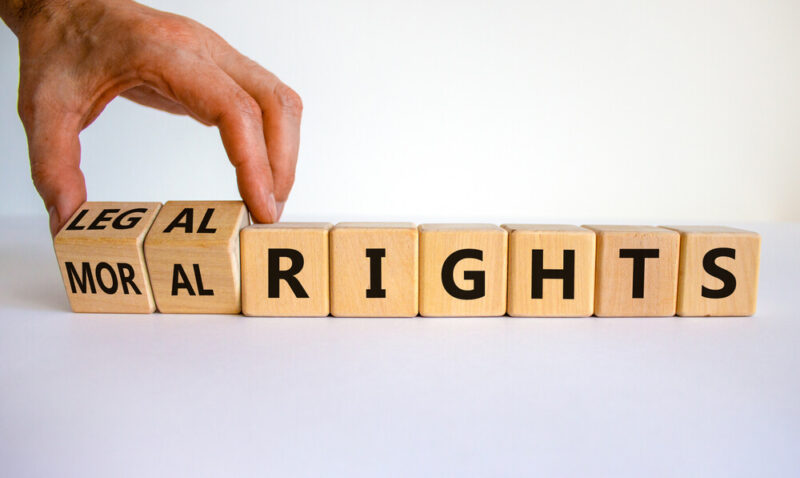Signing the rental agreement is the last step to settling in your new home; however, knowing what the tenant rights in Dubai are is significantly important. Also, realising the landlord’s rights will make things clear to be all on the same page and avoid any future issues.
This article will take you through all the important information you need to know before signing the tenancy contract in Dubai to be on the safe side.

Tenancy Contract in Dubai
1. What Are the Tenant and Landlord Rights While Signing a Tenancy Contract?
Renting in Dubai, whether you’re a landlord or tenant, you should know about your rights and the other party too, which is declared by the Real Estate Regulatory Agency (RERA).
Moreover, these laws are placed in order to define the relationship between the landlord and renter; they also highlight each one’s responsibilities to avoid any disputes.
Here is in detail the landlord and tenant rights according to Dubai’s law.
Tenant
- If you want to undertake any kind of renovations to the property, you should ask for the landlord’s permission and obtain any required licenses from official entities; this is according to Article 19.
- As a tenant, you should pay a refundable security deposit at the time of renting the property.
According to Article 20, in the case the landlord doesn’t refund the deposit, in full or part, due to any unfair deduction claims for the damage to the property, you can seek the help of the rent dispute committee to resolve the issue.
- Residents must return the property to the landlord in the same condition as received when signing the contract. Ordinary wear and tear or damage due to reasons beyond your control may be exempted.
In the event of any disagreement between the two parties, you can raise the issue to the dispute committee, as stated in Article 21.
- You should pay all charges and taxes levied by government entities and departments for the use of the property, as well as any fees or taxes prescribed for any sublease;
This applies unless the two parties agreed otherwise in the contract, as clarified in Article 22
- Upon vacating and returning possession of the property to the landlord, you shouldn’t remove any leasehold improvements you already did; this is stated in Article 23 of the rental law.
Knowing about tenant rights in Dubai is surely a must as it brings you full awareness and visibility to avoid any misunderstandings. If you want to learn more about your rights as a tenant, check out our podcast episode below!
Landlord Rights
- As a landlord, you’re required to hand over the property to the tenant in Dubai in good, livable condition, as specified in the contract.
However, in rare cases, the tenant may agree to lease the unfinished property and complete it himself. Who is liable for the costs of such completion is stated in Article 15.
- You’re responsible for undertaking all property maintenance works and repairs that can compromise the tenant’s living conditions during the contract’s period; this is unless the two parties agree otherwise, as stated in Article 16.
- Landlord shouldn’t make any changes or renovations to the property that would affect the tenant’s full use. However, if the tenant agrees to the landlord’s renovation request, the landlord may proceed, according to Article 17.
2. What Is RERA?
RERA is the Real Estate Regulatory Agency in Dubai that monitors the relationship between the landlord and tenant. This is through the different laws it declares so both parties are on clear understanding.
RERA preserves the tenant rights in Dubai as well as the owner with complete fairness and abidance to the government laws.
3. What Is Tenancy Contract in Dubai?
The tenancy contract in Dubai is a legal document between the landlord and tenant that includes all the agreed on terms and conditions by both parties.
This agreement gives the tenant the right to use this property according to the identified leasing period. It states all the terms of the lease, including both parties’ requirements and expectations, outlined as clauses in the agreement.
In addition, all the points or rules should be clearly included in the contract to avoid any disputes or misunderstandings.

4. What Is Dubai Tenancy Law?
The relationship between landlords and tenants in Dubai is regulated by the Real Estate Regulatory Agency (RERA) under the Dubai Rental Law No. 26 of 2007 (and amendments from Law No. 33 (2008).
The law outlines the roles and responsibilities of landlords and tenants to prevent any potential disputes and misunderstandings.
Besides, to solve any disputes, The Rent Disputes Settlement Centre (RDSC) is established under Decree No. 26 of 2013.
This entity looks into and resolves all matters of rental disputes in Dubai. Whether you’re a tenant or landlord, you can head to RDSC whenever you have any concern or problem that needs escalation.
This is to ensure both parties enjoy their rights with complete fairness and clarity.
5. How Are the Tenancy Contracts in Dubai Managed?
The tenancy contracts in Dubai are managed by RERA; it’s also responsible for the rules implemented in the tenancy agreements.
Lately, a new tenancy contracts system has been activated, which is under the Ejari system; All the leasing agreements should be registered on it, and it’s an obligatory step.

6. What Should the Tenancy Contract in Dubai Include?
The tenancy contract should include some important information that guarantees the tenant and landlord’s rights. These details are:
- The landlord’s name and contact details
- The renter’s name and contact details
- Property information: full address, building name, location, and size
- Plot number
- DEWA premise number
- Rent amount
- The contract’s period
- The signing date of the contract
- Security deposit
- Payment conditions
7. What Are the Important Clauses in Dubai Tenancy Contracts?
Dubai Tenancy Law includes a lot of important information; however, reading it in detail might be overwhelming, that’s why the below list includes the top important clauses that should be included in your tenancy contract, whether you’re a landlord or tenant.
- Documents for Reference. The landlord and tenant can have an addendum attached to the standard tenancy contract.
It outlines the complete terms and conditions of the agreement, including who pays for what services, for example, the chiller. At what point is there a need for a No Objection Certificate (NOC) from landlords during alterations to the property, and so on.
However, it is mandatory to register the tenancy contract along with any amendments with RERA, as stated in Article 4.
- Contract Termination. Tenancy contracts can’t be terminated by a single party unless the two parties agree on different terms.
This means the contract’s term is automatically extended for a similar period or for one year (whichever is less) with the same terms and conditions. This is after the expiry of the contract if the tenant continues to occupy the property, according to Article 6.
- Notice Period. If the landlord wants to end or amend the tenancy contract, they should provide written notice to the tenant at least 90 days before the expiration of the tenancy contract; this is mentioned in Article 14 of the Dubai Tenancy Contract.
- Emergency Case. In the case of the death of either party – the landlord or the tenant – the tenancy contract will not be terminated automatically.
It will go to the heirs unless the tenant’s heirs desire to end the agreement; in this case, the termination will come into effect at least 30 days from the date of notifying the landlord, according to Article 27.
- Ownership Transfer. If the ownership of the property is transferred to a new owner, it won’t affect the tenant’s right to continue to occupy the property; this comes into effect when the tenancy contract has a fixed date, according to Article 28.

8. From Where Can You Get a Copy of the Tenancy Contract in Dubai?
You can download a standard tenancy contract from Ejari’s official website or from the DLD’s smart app.
Besides, for any additional terms and conditions over and above the standard terms that the landlord and tenant agreed on, then an addendum to the Ejari contract is required. This is typically drafted by the real estate agent.
In addition, the tenancy contract is written in both English and Arabic, according to local laws and customs; it should be on a Microsoft Word file and fully editable in every part.
Not just that, as a tenant or landlord, you can edit, add, and delete clauses based on your specific needs and the approval of the other party.
The standard tenancy contract is divided into 7 sections; you can check them below for more visibility.
- Primary Terms and Conditions
- Tenant’s Obligations
- Landlord’s Obligations
- Contract Renewal and Termination
- Ejari Registration
- Governing Law
- Observations
9. Who Are the Parties That Sign Dubai’s Tenancy Contract?
The main parties who should sign the agreement are the landlord (owner) and tenant (renter); there should be a witness for each party while signing the contract.
In addition, the DLD accepts the signature of the landlord’s legal representative through a Power of Attorney (POA), if necessary.
However, a POA is valid for two years only and must be re-stamped by the Dubai Courts after this time. Consequently, property management companies, which are licensed by the DLD, are also permitted to sign contracts for the units they manage.
You can locate the approved list of companies on the DLD’s official portal.

10. What Are the Needed Documents for the Tenancy Contract in Dubai?
The needed documents to rent a house in Dubai might differ according to the landlord’s requirements from the tenant.
Although this, there are basic ones that apply to all cases, and they are listed below:
- The renter’s passport or Emirates ID (valid ones)
- The contact details of the tenant and their current address
- Bank cheques or a sponsor to guarantee the payment process
- Endorsement letter from the employer, in case the tenant is working in a specific company
- Proof of the banking status of the tenant
- Health insurance certificate (if needed)
- Extra documents like prior residency and marital status proofs (if needed).
11. What Happens When a Tenancy Contract Expires?
When a tenancy contract expires but the tenant continues to occupy the property, the contract term is automatically extended for a similar period or for one year (whichever is less).
This renewal follows the same terms and conditions as the previous agreement unless both sides agree on different terms.

Tenant Rights in Dubai
1. As a Tenant, Can You Evacuate the Property Before the Contract’s End Date?
Yes, you can, but in this case, the landlord is not obligated by law to refund any rent unless an early termination clause is specifically included in the contract.
In addition, there is no standard law or governing principle on early termination of tenancy in Dubai.
However, to be on the safe side, you can add a clause to the contract outlining a notice period and penalty amount in the case of early termination.
2. As a Tenant, How Long Is the Notice Period for Early Contract Termination and Is There a Penalty?
When a tenant chooses to leave the property before the end of the rental contract, they should inform the landlord 60 days in advance, which is the legal notice period.
In such a situation, you should pay the landlord a penalty fee which equals the rental amount of one month or two.
However, RERA doesn’t provide an article for early contract termination; accordingly, any penalty or refund of prepaid rent depends purely upon the landlord’s will and intention.

3. What Happens if the Landlord Asks the Tenant to Evacuate the Property Prior to the Tenancy Contract’s Expiration?
According to Dubai Tenancy Law, the landlord can ask you to evacuate the property before the contract’s expiration in the following cases:
- You didn’t pay the rental amount or part of it after 30 days of being notified
- The tenant sub-lets the property to a third party without the landlord’s written consent.
- The renter uses or allows others to use the property in an illegal way or do inappropriate activities.
- If you make changes to the property, that endangers its safety in a way that makes it hard to return it to its original condition.
- In case the property should undergo urgent maintenance.
In all the cases mentioned above, the landlord should notify the tenant of evacuation reasons 90 days before the contract’s end date.
Otherwise, if the landlord wants to evacuate the property, they must provide a 12-month notice to the tenant before the evacuation date. This is through a Notary Public or by registered mail.
If the owner has unreasonable grounds for evacuation, you can raise an official complaint to the Rent Disputes Settlement Centre (RDSC).
4. When Is the Rental Increase by Landlord Permitted?
Under the Dubai Rental Price Index, landlords may adhere to the following framework for rental increases:
- No increase is permitted when the rent increase calculator shows the current rent paid is within the stipulated range
- A 5% rent increase is permitted when the rent falls between 11–20% less than the average for the location
- A 10% rent increase is permitted when the rent falls between 21–30% less than the average for the location
- A 15% rent increase is permitted when the rent falls between 31–40% less than the average for the location;
- A 20% rent increase is permitted when the rent is less than 40% of the average for the location.
5. What Are the Variables that Affect the Amount of Rent Increase in Dubai?
RERA determines the rent index and to what extent an increase will apply based on the following:
- Type of property (residential, commercial, or industrial)
- Freehold or leasehold
- Villa or apartment
- Location of the property
- The number of bedrooms.
The information used by RERA to obtain the average rent is collected from DLD’s Ejari system.

6. What Is the Rent Increase Notice Period in Dubai?
According to the rent increase laws in Dubai, if the landlord demands an increase in the rent upon renewal, you are not obligated to agree to it. That’s why it’s important to know your rights in this case.
Besides, whenever any party wants to change any term in the tenancy contract, they must notify the other party within 90 days before the expiry of the contract.
This is the minimum notice period, according to the Dubai Tenancy Law, unless the two parties agree on other terms.
Things to check in case the landlord asks for a rent increase:
- Whether the proposed rent increase is within the bounds of RERA’s rental increase calculator
- If your community is not listed in the rental increase calculator, then the regular rules of rental increase in Dubai do not apply. In this instance, you and your landlord will have to agree upon what you feel is a fair price.
- If your community is listed in the rental increase calculator, but you believe one or both of the above-mentioned requirements have not been met, you can contest the landlord’s notice.
In case you don’t reach an agreement, you can submit a complaint to the Rental Dispute Center in Dubai.
7. What Should You Do After Refusing the Rent Increase?
If you refuse the rental increase as proposed by the landlord, you must provide 60 days’ notice before the renewal date that you will be vacating the property.
Conversely, you are seeking to negotiate a rental decrease, so you must ensure a written request is issued to the landlord. It should be submitted within the 90-day period before the expiry date of the tenancy contract.
This is according to the Tenancy Law unless both parties agree on other details.

8. What Are My Rights in Case There Isn’t a Formal Tenancy Contract?
Both parties aren’t legally protected by RERA in case there isn’t a formal tenancy agreement.
In addition, the Rent Disputes Settlement Centre or any other competent governmental entity won’t be able to support the rental disputes between both parties.
Tenant and Landlord Relationship
1. What Is a Tenant and Landlord Relationship?
In the tenant-landlord relationship, the landlord retains the right of ownership of the property, while the tenant receives the right to use the property against the rental value they pay for the unit.
In addition, the tenant is expected to look after the property, and the landlord is responsible for the maintenance, as outlined in the agreement.
It’s important that both parties maintain a good rapport as this develops mutual trust and is particularly important in case any issue arises.
2. Is the Landlord Allowed to Enter the Property in the Tenant’s Absence?
No, the landlord is not allowed to enter the unit during the renter’s absence or without their permission unless they agree on this and it’s included in the contract. This is according to the tenant rights in Dubai.
Moreover, if the landlord wants to sell the property, they should ask for the tenant’s consent to be able to show the property to potential buyers. When the tenant permits viewings, the landlord must provide at least 24 hours’ notice and must be present at the time of viewing.
3. I Have Occupied the Same Property for years, Do I Have any Special Rights?
No, as a tenant, you don’t have special rights or privileges from the legal side when you spend a long period in the same unit; all tenants in Dubai have the same rights and responsibilities.

4. What Are the Tenant Rights in Dubai in Case of a Rental Dispute?
The tenant’s right in case of dispute is first to discuss the reasons with the owner; if you don’t reach a mutual agreement, then you can submit a complaint to the Rent Disputes Settlement Centre (RDSC).
Rent disputes between tenant and landlord usually arise due to unreasonable increases in the rent amount or great deduction from the security deposit.
However, any increase in the lease amount should follow the parameters of the RERA Rental Increase Calculator.
FAQ
Can Landlord Increase Rent in Dubai After 1 Year?
Yes, they can as long as it’s the time for renewal; otherwise according to the tenant rights in Dubai, they can’t increase the rent during the lease period.
This inclusive guide about tenant rights in Dubai, contracts, rules, and responsibilities as a tenant brings you full visibility.
You can now rent the home of your dreams without any worries and with complete knowledge about Dubai laws as an old or new tenant.